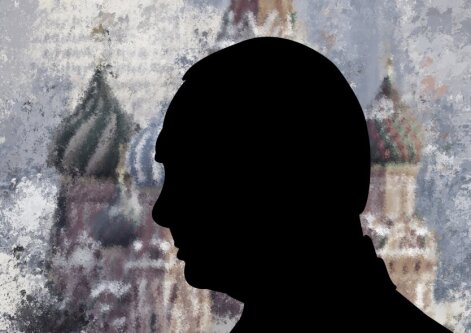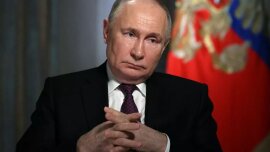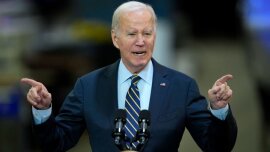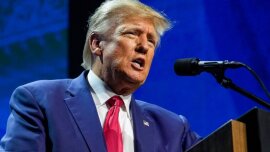The State Duma of the Russian Federation voted for an appeal to Vladimir Putin to recognize the so-called Luhansk and Donetsk People's Republics (LDNR). This is a new introduction to the development of the confrontation between the Russian Federation and Ukraine. The Kremlin is simultaneously raising the stakes and preparing an escape route. For Kyiv, this means an extremely busy 2022, from which Ukraine can come out much stronger than today. Let's figure it out.
Recognition - reasons
The timing of the vote in the State Duma and the very fact of the issue of recognition is a demonstration of the stalemate in the pressure on Ukraine, which has intensified since the end of 2021.
The politicians of the United States, the EU states and the Russian Federation are actively discussing the issues of a possible war and are united in their messages to the leadership of Ukraine - compromises on the implementation of the Minsk agreements. It is extremely important for the Kremlin to force Bankova, at least, to sit down at the negotiating table with representatives of the so-called LNR and DNR. Direct negotiations, in which Russia remains “outside the brackets”, positioning itself as a mediator, guarantor of implementation, and so on.
Such an outcome is beneficial to both Putin and some Western leaders. Therefore, they talk about Minsk almost every day, often limiting the issue of concessions to the issue of “security guarantees” that the Russian Federation insists on.
But in this scheme of conversations there is one "BUT" - the intransigence of Ukraine. Russia, the United States and others expected a panicky reaction from the Ukrainian authorities, society, after statements about possible aggression. In reality, we got a fairly calm behavior with statements that there is always a danger. Therefore, even if we have to fight, we will fight. In this format, it is natural to talk about some large-scale compromises and concessions.
The situation becomes a stalemate. Moreover, outside players cannot afford to back down:
for the Biden administration to say something like “they made a mistake and there is no danger of a Russian attack” does not work: there are press statements, there is foreign policy activity. After all, there are Russian troops at the Ukrainian borders. In addition, when you declare a danger to Ukraine, you must demonstrate the presence of support. This is especially important in the light of the 2022 midterm elections against the background of the foreign policy failure in Afghanistan. Therefore, the United States of America and its closest allies are transferring weapons to Ukraine.
The Russian Federation is concentrating troops, flexing its muscles and also cannot "reverse". And for Putin, the situation is even worse: retreating now to take the path of de-escalation would mean a sign of weakness. Some Russian voters may believe that Putin was afraid of the Ukrainian army or the reaction of the West. These are already internal political problems - weak, concessive leaders of Russia do not live long.
It is unacceptable for the Russian Federation to yield, but to fight (meaning a large-scale war) is even worse. There are ways out that allow, at least against the domestic political background, to declare “victory”. That is, to repeat either the Georgian or Crimean cases: recognize or annex the “proud republics”. The consumer may like it.
But in the foreign policy field, this will mean failure. This is not only a possible reaction of the West - it may not be. The essence of the issue of Ukraine. Russia does not need Donetsk and Luhansk, Russia needs influence over the whole of Ukraine. Based on this, the recognition of the so-called "DNR" and "LNR" will mean that Kyiv will have a free hand. This will mean the death of "Minsk-2" and the opportunity for Ukrainian elites, Ukrainian society to start rebuilding their own country. This is a loss for the Russian Federation of even a hypothetical opportunity to influence the internal Ukrainian political alignment over the coming years. That is, "recognition", if it ends with a normative act, is a demonstration of "victory" for its citizens in the face of the complete failure of the foreign policy combination of the last eight years.
But the Kremlin will not put an end to it.
Recognition is not a quick process.
Let's consider in order the first probability of recognition and the process itself. For the final decision, the conclusion of the Russian Foreign Ministry is necessary, and only after that Putin's decision. "Administrative procedures" can drag on for months. But starting today, the Kremlin is raising the stakes in dialogue with the West. Russia will try to “sell” the decision on Donbas as forced and reversible (or one that can be stopped) in case of concessions from Ukraine.
Against this background, the Russian Federation will continue its economic pressure, information operations, will continue attempts to build up the situation in our country from within. And Ukraine's foreign policy partners will press with a vengeance on issues of compromise.
The key issue here is the sustainability of Ukraine. The country's leadership can say "well, this is it." Or maybe try to look for compromises so that there is no “recognition”. And this is a way to a great surrender divided to a small steps.
What if they recognize it quickly?
Now let's imagine that the so-called "LNR" and "DNR" were recognized promptly. That Putin's decision will be ready in March. Will this mean the automatic end of Minsk 2? Logically, yes.
From the point of view of the Russian Federation, no. Let me remind you of Russia's demands for concessions to Ukraine: Kyiv must sit down at the negotiating table with the so-called "LNR" and "DNR". And the Russian Federation remains in the status of an external observer and mediator.
The fact that the occupied regions of Donbas are recognized as independent states (by Russia) does not change anything in this formula. Rather, it creates formal grounds for such a "direct dialogue" to take place. Thus, the Russian Federation will actively promote the thesis of the incompleteness of the conflict and the possibility of solving the problem through direct “interstate agreements” on the platform of the Normandy format. The approach may find enthusiastic support from Germany and France. The argument will be the same “a subject has appeared, it’s easier to talk directly.”
Options for us
And again, everything rests on the position of official Kyiv. If Ukraine is unable to resist, if external pressure prevails over the instinct of self-preservation, then the country's leadership will go for a new format and lose everything. The question here is not the final agreements. The essence of the parties to the conflict and the format of negotiations. Russia will definitely be "outside the brackets", it will successfully complete the dialogue on coexistence with the US and the EU. And in the future, in addition to the loss of people and territory, we can play out to the “Russian peacekeepers” in the Donbas.
There is a second option. Ukraine takes the blow and announces the death of "Minsk-2". The position is simple: “Russia is moving further along the path of aggression, having itself annulled the peace process.” In this case, the Ukrainian state has the only way to survive: a sharp increase in the defense budget, an economic transformation program, in the Donbas a program of “washing people out” - pulling residents of the occupied part of Donbas onto its territory.
Society is told that we must become stronger in order to resolve the issue of both Donbas and Crimea in the future. And so we are changing priorities, concentrating on military, economic, political, and information security. Such an approach can be formalized within Ukraine either by a decision of the Verkhovna Rada or through a referendum. The latter is possible if President Zelensky wants additional legitimation, an increase in ratings. Moreover, a referendum may even be preferable: they will not trample on the will of the citizens of Western democracies. They will try to put pressure on the moment of preparing the vote, at the moment of holding it, but then they will wash their hands of it. True, perhaps by reducing the level of support. But sooner or later you have to get off the needle of "foreign aid".
Therefore, the official Kyiv, the Ukrainian society has several tasks:
withstand colossal external pressure in the next five to six months, regardless of the “recognition of the republics” scenario;
if recognition becomes a fact, firmly declare the death of "Minsk-2" and formalize it with a formal decision.
Declare a change in priorities in the development of the country. We must become strong, rational, capable of planning (and implementing) large-scale projects. And then you can return to the topic of Donbas and Crimea from completely different positions.

























